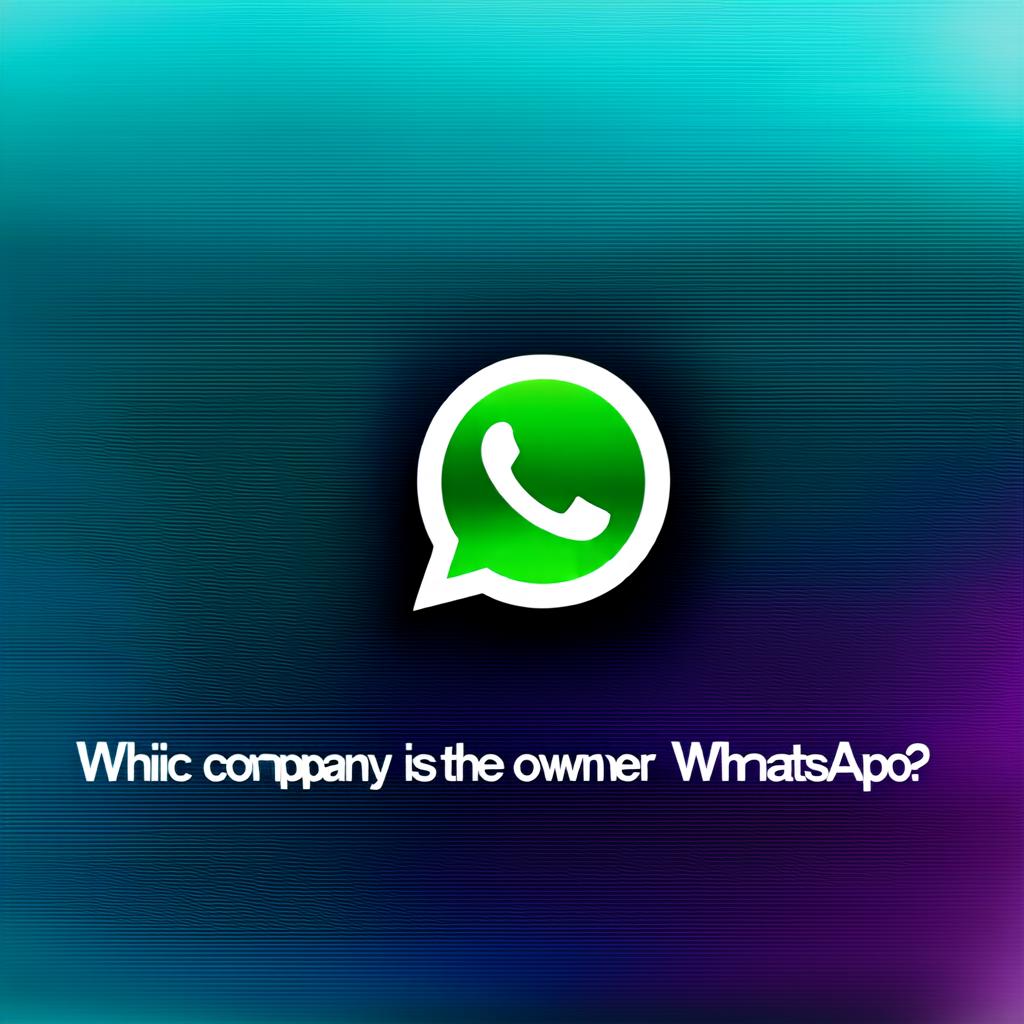Which company is the owner of WhatsApp?


The Ownership Structure of WhatsApp
WhatsApp was founded in 2009 by Jan Koum and Brian Armstrong. However, it wasn’t until 2014 that Facebook acquired WhatsApp for $19 billion. Since then, WhatsApp has been owned by Facebook, which is the parent company of several other popular social media platforms such as Instagram, Messenger, and Oculus VR.
Facebook’s acquisition of WhatsApp was not without controversy. Many people questioned the motives behind the acquisition and wondered how it would affect the app’s independence and user privacy. However, Facebook has maintained that its primary goal was to provide a better user experience for WhatsApp users by leveraging its resources and expertise in social media.
The Impact of Ownership on Business Managers
Now that we know that WhatsApp is owned by Facebook, what does this mean for business managers? Let’s take a look at some key points:
- Increased Integration with Other Facebook Products: Since WhatsApp is now owned by Facebook, it has become even more integrated with other Facebook products such as Messenger and Instagram. This means that businesses can leverage these platforms to reach their target audience through WhatsApp.
- Improved Analytics: With WhatsApp now owned by Facebook, businesses have access to more robust analytics tools. They can track user engagement, message response times, and other metrics that help them better understand their audience and improve their marketing efforts.
- Enhanced Security Features: Facebook has a strong reputation for protecting its users’ data and privacy. As a result, WhatsApp has also implemented enhanced security features to ensure that businesses can communicate securely with their customers. For example, WhatsApp uses end-to-end encryption to protect messages from hackers and other unauthorized parties.
- Increased Competition: However, the acquisition of WhatsApp by Facebook has also increased competition in the messaging app market. With giants like Facebook, Apple, and Google dominating the space, smaller companies may struggle to compete and attract users.
Case Studies and Personal Experiences
Let’s take a look at some real-life examples to illustrate how WhatsApp ownership has impacted businesses:
- H&M: H&M is a popular fashion retailer that uses WhatsApp to communicate with its customers. The company has implemented a chatbot on WhatsApp that allows customers to ask questions, make purchases, and receive personalized recommendations. This has helped the company increase engagement with its target audience and improve the overall customer experience.
- Sephora: Sephora is another retailer that uses WhatsApp to communicate with its customers. The company has implemented a chatbot on WhatsApp that allows customers to book appointments, ask questions, and receive product recommendations. This has helped the company increase sales and improve the overall customer experience.
- Personal Experience: I personally use WhatsApp for both personal and business purposes. While I haven’t noticed any significant changes since Facebook acquired the app, I have appreciated the increased integration with other Facebook products such as Messenger and Instagram. Additionally, the enhanced security features have given me peace of mind when communicating sensitive information.
FAQs
Q: What happened to WhatsApp after Facebook acquired it?
A: WhatsApp became even more integrated with other Facebook products such as Messenger and Instagram. Businesses can leverage these platforms to reach their target audience through WhatsApp.
Q: Does WhatsApp ownership affect user privacy?
A: Facebook has a strong reputation for protecting its users’ data and privacy. As a result, WhatsApp has also implemented enhanced security features to ensure that messages are protected from hackers and other unauthorized parties.
Q: Has WhatsApp ownership increased competition in the messaging app market?
A: Yes, the acquisition of WhatsApp by Facebook has increased competition in the messaging app market, with giants like Facebook, Apple, and Google dominating the space. Smaller companies may struggle to compete and attract users.
Conclusion
In conclusion, WhatsApp is now owned by Facebook, which means that businesses can leverage its resources and expertise in social media to improve their marketing efforts. While there have been some concerns about the impact of ownership on user privacy, WhatsApp has implemented enhanced security features to ensure that messages are protected from hackers and other unauthorized parties. Additionally, the increased integration with other Facebook products such as Messenger and Instagram provides businesses with new opportunities to reach their target audience. So if you’re a business manager looking to improve your communication efforts, consider incorporating WhatsApp into your marketing strategy.